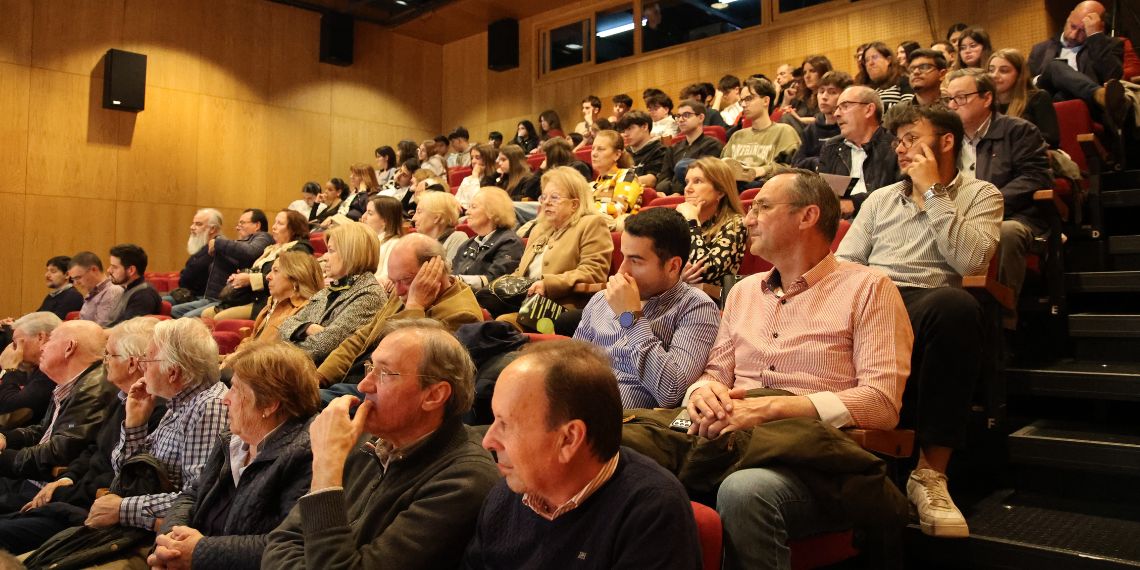For two years, the Ecovale project promoted the active participation of the communities of Vila Nova de Famalicão and Barcelos in various awareness-raising activities on energy vulnerability and energy efficiency. Training activities for adults and children, an innovation platform, energy clubs in schools, and many hours of knowledge exchange later, the message is clear: we are on the right track to save more energy and become even more sustainable – with INESC TEC part of this mission.
“Let’s talk numbers: within the scope of the project, the team engaged with more than 2,000 children and young people, carrying out training activities at 14 schools, establishing energy efficiency clubs and involving teachers and students in practical projects; moreover, Ecovale led to the installation of 19 consumption monitoring systems in schools and the organisation of 14 workshops. According to Zenaida Mourão, a researcher at INESC TEC, the real results go far beyond these figures: “During the project, we felt that the community in the municipalities involved truly changed their energy consumption practices and the use of resources. “In schools, for instance, we witnessed a significant improvement in knowledge about key concepts – energy, renewable and fossil energy sources, energy efficiency, energy transformation, and energy preservation – after the training sessions. We also realised that certain children feel colder or wormer at home than at school, with much more discomfort during the summer – which helped them better understand the concept of energy poverty.”
In general, the children reported a high adoption of efficient behaviours; according to Alexandre Rodrigues, from CEVE – Cooperativa Elétrica do Vale d’Este, the promoter of the initiative – this is the key to the success of the project. During the sessions with adults, we addressed topics like efficient use of household appliances, lighting and digital energy services, tariff comparison and consumption schedules, access to funded investments, and monitoring of domestic consumption. However, we know from experience that the small actions taken by the younger ones at their homes are truly difference-makers.” And this was the major result of the project: a legacy of energy citizenship and education towards efficiency.
Building a more sustainable future
The Ecovale team also developed an open innovation platform for the submission of ideas from the community, promoting sustainable energy practices that contribute to reduce energy poverty and energy efficiency clubs in schools. “This work will continue beyond the end of the project, leaving a set of educational resources available to the community through the website, including videos, flyers, and practical guides. Schools will continue to participate in challenges and competitions that promote efficient energy consumption practices and develop practical projects,” concluded Zenaida Mourão.
The final event was also an opportunity to reflect on the challenges of building a society that increasingly values energy efficiency. Sandra Ferreira, from ERSE, presented the Energy Consumption Efficiency Promotion Plan (PPEC), an initiative that supports projects that promote the more efficient use of electricity among house and business consumer – which also funded Ecovale. João Fernandes, from DECO, reflected on the relationship between energy transition and energy poverty, highlighting the role of the consumer in this process and the challenges to ensure a fair and inclusive transition. Marta Gabriel, from INEGI, addressed the implications of energy poverty on health, underlining how poor conditions in homes can affect the physical and mental well-being of the most vulnerable populations.
The Ecovale project was promoted by CEVE – Cooperativa Elétrica do Vale d’Este, with technical support from INESC TEC and funding from ERSE, through the PPEC.













 News, current topics, curiosities and so much more about INESC TEC and its community!
News, current topics, curiosities and so much more about INESC TEC and its community!